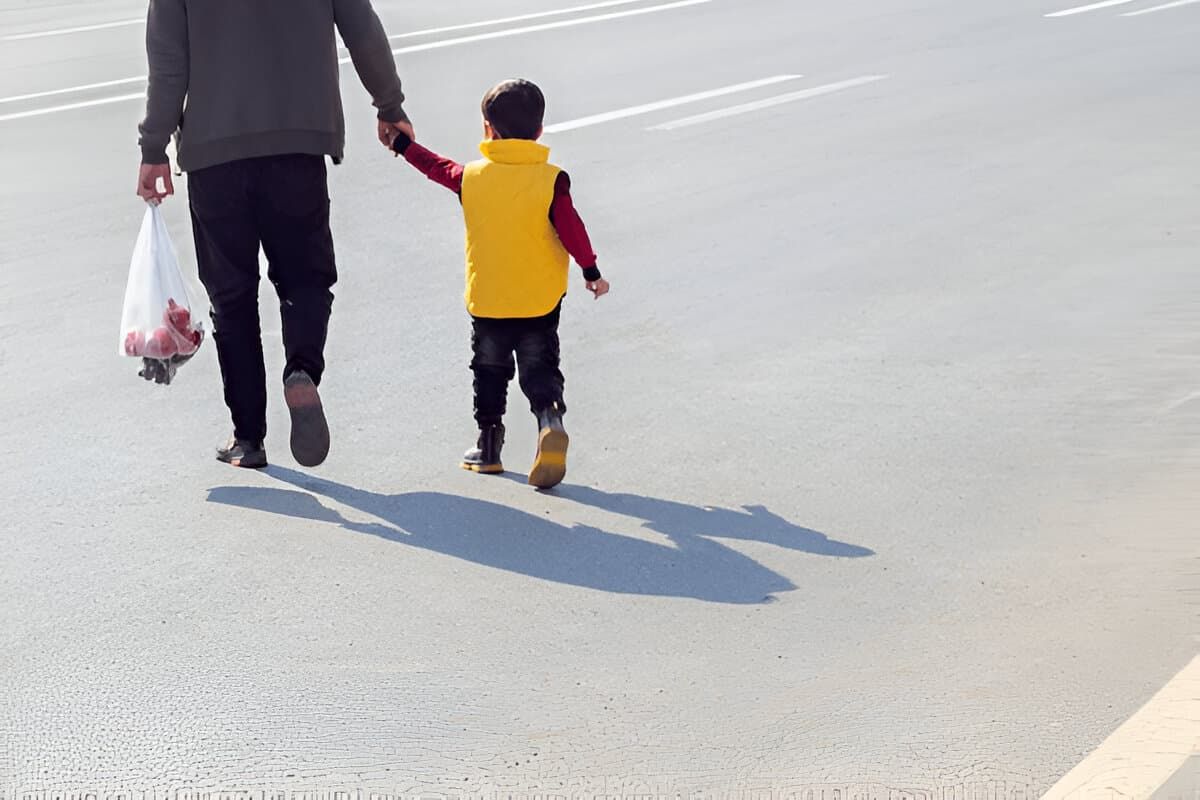
What Are Florida’s Current Car Seat Laws for Children?
If you live in Florida or travel with young passengers, knowing the state’s car seat laws isn’t just a good idea—it’s essential for your child’s safety—and avoiding fines.
Florida law requires proper use of crash-tested, federally approved child restraint devices for every child ages 5 and under, regardless of where they are seated in the vehicle. But the details—like which seats are acceptable for different age groups, legal penalties, and exceptions—can be easy to miss.
This post breaks down the current Florida statute, explains the legal requirements by age, highlights penalties, and offers practical tips for compliance. While it’s not legal advice, it’s a guide to help you understand your obligations—and why these regulations exist for the safety of our littlest passengers.
Let’s start with the age-based requirements outlined in Florida Statute § 316.613.
Age-Based Requirements Under Florida Law
Florida law mandates that children age 5 or younger must be secured in a crash-tested, federally approved child restraint device whenever they ride in a vehicle. Breaking it down further:
- Ages 0 to 3: Children must ride in either a separate carrier or a vehicle manufacturer’s integrated child seat.
- Ages 4 to 5: Children must use a separate carrier, an integrated child seat, or a booster seat.
Florida law also allows a seat belt (without a child restraint) for children aged 4 to 5 only under specific conditions—such as when the driver is not immediate family, it’s an emergency, or the child has a documented medical exception. 
Drivers are responsible for ensuring these requirements are met. Violations result in a fine of around $60 and three points against the driver’s license. In some cases, attending a safety program may exempt the violation and points.
Legal Penalties and Practical Implications
Failure to comply with Florida’s car seat laws isn’t just risky—it’s a moving violation. The base fine is $60, and if you accumulate points, that adds to insurance premiums and can affect your driving record.
Courts may waive the fine and points if the violator completes an approved child restraint safety program. It’s a reminder that these rules aim not to punish, but to promote safety.
Importantly, evidence of non-compliance cannot be used against you as comparative negligence in civil cases. This means your failure to buckle the child properly doesn’t automatically shift fault in the event of an accident.
While the law allows certain exceptions, they’re narrow and specific. For most everyday situations—including traveling with family—using a proper car seat remains your best option for both legal compliance and your child’s safety.
What Florida Experts and Safety Agencies Recommend
Florida law sets the minimum requirements—but recognized safety experts advise going beyond the baseline for optimal protection.
Agencies like the Florida Department of Highway Safety and Motor Vehicles (FLHSMV) reference federal guidelines (FMVSS 213) and recommend using seats that fit your child’s size, are properly installed, and are used every time you drive.
Health organizations like the American Academy of Pediatrics (AAP) suggest keeping children in rear-facing seats as long as possible (often until at least age 2 or until they reach the seat’s height/weight limits), then moving to forward-facing with harness, and finally a booster until they fit a seat belt properly.
When your child outgrows a forward-facing seat, Florida law allows transition to a booster—but experts agree staying with the most protective option until they clearly outgrow it is safest.
Florida law doesn’t specify weight or height thresholds by name—but reputable car seat manufacturers do. Always follow the seat’s instructions over age-based limits. You’re prioritizing safety when you do.
Civil Liability in the Event of a Car Seat Violation
While Florida law explicitly states that failure to comply with child seat laws cannot be used as evidence of comparative negligence in civil court, that doesn’t mean car seat misuse is irrelevant in all legal contexts.
If your child was injured in a crash—especially one involving another party’s negligence—a personal injury attorney can help you build a case for compensation regardless of whether a seat violation occurred.
More importantly, if another party or company contributed to a car seat malfunction or vehicle defect, product liability laws may apply. These cases are complex and often require expert evaluation, medical documentation, and evidence of product failure.
In serious injury claims, the legal process may involve multiple liable parties—another driver, a manufacturer, or even a rideshare company. This is where having legal guidance becomes invaluable. An attorney can help ensure that a car seat violation doesn’t overshadow the main issue: the harm caused by someone else’s negligence.
When Law Enforcement or CPS Gets Involved
If a child is found to be riding unrestrained or improperly secured—especially in repeat incidents—Florida law enforcement may escalate the issue. In rare but serious cases, Child Protective Services (CPS) may become involved, particularly if the violation is considered reckless or part of a pattern of neglect.
This type of legal scrutiny can carry long-term consequences beyond a traffic ticket. While a single citation may not raise red flags, multiple violations could affect custody rights or spark a broader investigation into parenting fitness. Legal representation may become necessary to protect your parental rights and respond appropriately to any inquiries.
An attorney familiar with family law and traffic regulations can offer guidance on how to respond, comply, and defend your conduct as a caregiver. Even if CPS is not involved, some insurance companies may scrutinize accident reports that mention unrestrained children.
That’s another reason legal support is helpful—both for defense and potential injury claims.
Documentation Matters in Injury Claims Involving Children
In personal injury cases involving children, documentation is critical. When a crash occurs, having clear records of proper car seat use—photos, receipts, installation records—can support your claim and reduce any ambiguity.
If the at-fault driver’s insurance company tries to minimize your damages or shift blame, your ability to show responsible restraint use can strengthen your legal position.
Even if the child was in a booster seat that met Florida’s basic requirement, the insurance company may still try to argue contributory negligence or claim the child would have fared better in a different restraint.
While this may not hold legal water, it’s a common tactic in negotiations. An experienced attorney can counter these claims and keep the focus on the negligent party’s actions—not on arbitrary seat preferences.
If you’re unsure whether your claim is valid—or how to defend your actions as a parent—it’s best to speak with a personal injury lawyer. They can review your case, gather the right documentation, and advise you on the next steps without judgment or assumption.
Why Insurance Companies Try to Shift Blame to Parents
Insurance adjusters don’t always play fair—especially in cases involving injured children. One of their common tactics is to subtly place blame on the parent or guardian, implying the child’s injuries were due to improper car seat use or poor judgment.
This often has little basis in fact, but it can create guilt or hesitation. Adjusters may even suggest that a different car seat or harness type would have prevented injury, ignoring the actual cause of the crash.
If you find yourself in this situation, it’s important to remember that Florida law recognizes comparative fault, but also protects parents who did their best under the circumstances.
A lawyer can help push back against these deflections and keep the focus on the actual at-fault party, rather than letting the insurer unfairly reduce your payout through blame-shifting tactics.
How Insurers Use “Comparative Fault” to Reduce What They Owe
In cases involving serious injuries, Florida’s modified comparative negligence rule becomes a key issue. Insurance companies will often argue that you, the parent, were partially responsible—even if that’s not supported by the facts. They may cite things like an expired car seat, minor errors in installation, or a missing tether strap.
Why does this matter? Because under state law, any share of fault assigned to you can reduce your recovery proportionally. A 20% share of fault means 20% less in damages.
An experienced attorney knows how to combat these claims by working with safety experts, gathering witness testimony, and demonstrating that your actions were reasonable—even if they weren’t perfect. Legal support makes a big difference in preventing insurers from exploiting minor issues to dodge responsibility.
The Risks of Accepting an Early Settlement Too Soon
Soon after an accident, especially one involving children, insurance companies may contact you with a settlement offer. On the surface, it might look like a decent amount. But in many cases, it’s a lowball figure designed to close the case before the full extent of injuries, treatments, or therapy needs are understood.
Pediatric injuries can be especially deceptive. A child might appear fine at first but later show signs of concussion, emotional trauma, or orthopedic issues. If you accept the settlement, you typically give up your right to pursue more compensation—even if new symptoms arise.
A personal injury lawyer helps you understand the long-term value of the claim and ensures you don’t sign away your rights prematurely. Don’t rush a decision that could affect your child’s future.
Why It Never Hurts to File a Claim — Even If You’re Unsure
After an accident, many parents feel hesitant about filing a claim—especially if their child’s injuries don’t seem severe at first. But Florida law doesn’t require you to be 100% certain before taking legal action. In fact, waiting too long or dismissing a valid concern could cost your family access to compensation down the line.
Children often experience delayed symptoms. Concussions, developmental issues, or emotional trauma may not appear for days or weeks. Filing a claim preserves your rights while giving your attorney time to investigate further.
There’s no downside—consultations are free, and you’re under no obligation to proceed. A qualified lawyer can help determine if negligence or a defective child seat contributed to your situation, and if compensation is appropriate. Bottom line: it’s better to explore your options now than regret missing them later.
Call Boohoff Law for a Free Consultation Today
If your child was injured in a Florida car accident, it’s important to understand your legal options—and act quickly.
Boohoff Law, P.A. helps families across the state navigate these emotional and legal challenges. With offices in Tampa, Brandon, and North Port, we offer compassionate guidance and aggressive advocacy when you need it most.
Call (813) 445-8161 in Tampa, (813) 321-7878 in Brandon, (941) 888-0848 in North Port, or (877) 999-9999 in Seattle. We’ll listen to your story, answer your questions, and help you decide what to do next.
Frequently Asked Questions (FAQs)
What type of car seat does Florida law require for toddlers?
Children under age 5 must be in a federally approved car seat. Ages 3 and under must be in a separate carrier or integrated seat. Ages 4–5 can use a booster seat if appropriate for their size.
Can I face penalties if I use the wrong car seat?
Yes. Florida law allows fines and points on your license for noncompliance. More importantly, using the wrong seat can jeopardize your child’s safety — and may affect liability in an accident claim.
Will insurance pay if my child was improperly restrained?
Possibly, but the insurer may try to reduce your payout by citing comparative fault. A lawyer can push back and show that the crash, not the seat usage, was the main cause of injury.
What if my rental car didn’t offer a proper child seat?
Rental companies aren’t strictly required to provide car seats unless requested. However, if they provided a faulty or unsafe one, you may have a legal claim for negligence or product liability.
How long do I have to file a claim for a child’s injury?
Florida’s statute of limitations is generally two years for personal injury. But when the injured party is a child, additional time may be granted. Speak with a lawyer as soon as possible to preserve your rights.











